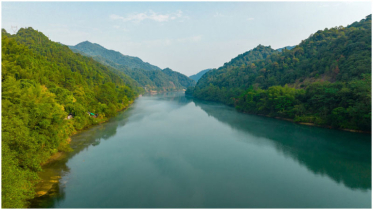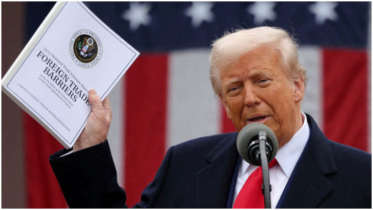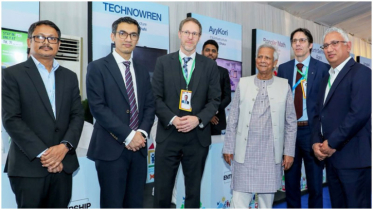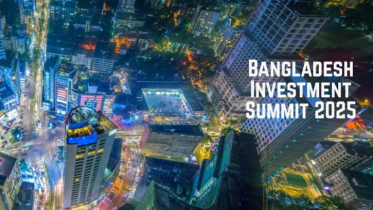Bangladesh-WB partnership deep rooted and set to grow further
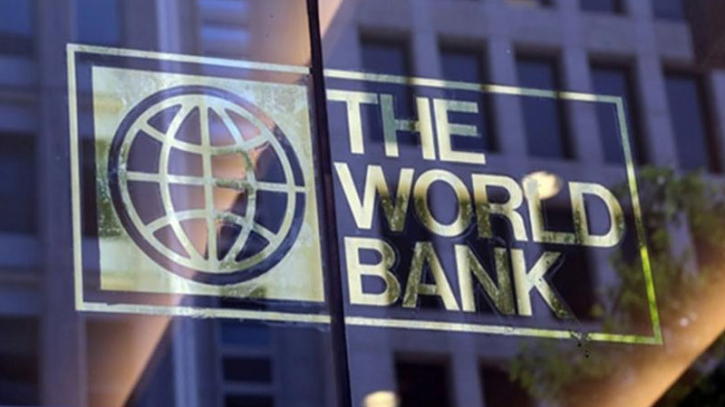
More than 5 decades ago, Bangladesh, a sovereign state had marked its own spot in the world map. After a long bloody war of 9 months, Bangladesh brought home its glorious victory of independence. But the decades long oppression, suppression, injustice and severe discrimination made the people poor and illiterate.
For instance, in a typical year of between 1960 and 1970, per capita annual income was BDT450 (US$5.30, based on 2020 value), with 80% of the people living below the poverty line. Thus, after independence, Bangladesh was left with a devastated and war-torn economy. We had embraced an economy of a GDP growth rate of -5.48% which further decreased in the next year, 1972 to -13.96%. The country had fallen into a vicious cycle of poverty and the per capita income was only $91. What the country then desperately needed was injection of foreign investments. At that crucial stage, in August, 1972, Bangladesh became a member of the World Bank Group (WBG) and that same year WBG provided Bangladesh a credit of $50 million.
World Bank, as the first development partner of Bangladesh, has always supported the growth of the country. In 2022, Bangladesh had a growth of 7.25% with per capita income of $2,687. The WBG has not only invested for economic profit but also has worked together for a better living standard of the people through different development projects. Bangladesh had a poor economy that needed financial assistance to grow and World Bank's main motto was to raise the living standard through economic development and poverty reduction.
However, considering how fast Bangladesh has recovered and how the global economy has shaped itself, a lot of equations has changed. When in 2012, WBG had taken a step back from financing the Padma bridge Project, rumours spread regarding the partnership. However, the truth came to light and the relationship was unaffected. WBG is currently focusing on a sustainable development by ensuring a healthy environment. According to the Managing Director of the World Bank, Axel van Trotsenburg: "Bangladesh and the World Bank will work together, as we have for half a century, helped the country continue to be a model of green, resilient and inclusive development. Our partnership is one of ambition and passion to help create a more prosperous and better future for all Bangladeshis." Recent projects of WBG in Bangladesh also illustrate the same.
Recently, World Bank had celebrated 50 years partnership with Bangladesh in Washington D.C where WBG had agreed to provide Bangladesh a $2.25 billion loan for its five development projects on regional trade and connectivity, disaster preparedness, and environmental management.
Fund allocation of 5 Projects
The projects are mostly taken for building climate resilience. The RIVER project will be the first investment program to support the Bangladesh Delta Plan 2100. Through the project Bangladesh will be able to enhance public planning, financing and delivery of green and climate resilient interventions. Other than strengthening the capacity in environmental management and reduce pollution discharges, the funds also aim to increase resource efficiency of micro enterprises in Bangladesh. However, highest allocation has been provided for accelerating transport and trade connectivity in Eastern South Asia.
Bangladesh is getting four loans out of five from the regular International Development Association (IDA). IDA loan's term and conditions are favourable for Bangladesh. Regular IDA loans are to be repaid in 30 years, with a grace period of five years. The Bangladeshi authorities said a service charge of 0.75 percent per annum and an interest rate of 1.25 percent shall be paid on the withdrawn amount. Besides, a maximum annual commitment fee of 0.50% is payable on the unwithdrawn financing balance. It should be noted that the commitment fee has been waived by the World Bank for Bangladesh for a long time including the current financial year.
The flow of funds from WBG doesn't stop here. WBG is planning for a disbursement of $4.9 billion in the next fiscal year. The loan is expected to be used in health, education, youth, rural and urban infrastructure and water resources development sectors. Among the 12 projects listed for the credit, the Health, Population and Nutrition Sector Development Program (HPNSDP) will receive $900 million. Unendingly, WBG has financed Bangladesh enough to reduce mortality rate, ensure nutrition in both urban and rural areas. The contribution of World Bank in dealing with covid-19 is remarkable. WBG has made a contribution of nearly $1 billion starting from the year 2020 to 2022 for getting critical supplies and ensure vaccines to fight Covid-19. That was also an exemplary achievement of Bangladesh in vaccine Diplomacy.
World Bank's for the next fiscal year's credit will also focus on climate change, rural and urban infrastructural development and water resource development. For ecological restoration project of '5 rivers' of Dhaka, WBG has allocated $300 million. All the funds will be provided under the World Bank's 5-year (FY 2022-23 to 2026-27) Country Partnership Framework (CPF). Performance of Bangladesh in CPF of WBG is overall Satisfactory.
Considering the situation Bangladesh is in, without a doubt, World Bank's support will help the economy flourish and ease a lot of pressures. However, the loan will be granted only if the projects are completed as scheduled. The World in the past five decades has committed to the country over $40.5 billion in loans and $722 million in grants under 368 projects or programs. Moreover, with more than $16.3 billion commitment to ongoing programs, Bangladesh currently implements the largest IDA country program globally. To deal with the rising inflation, inward focus of developed countries, shrinking aids for emerging economies, Bangladesh needs financial assistance. In such a circumstance, it would be wise for the country to ensure the timely completion of projects and utilize the funds from World Bank to carry the partnership decades long.
.png)

